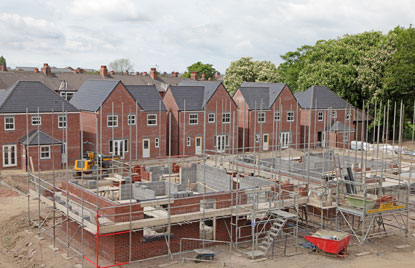Councils have hit out at the government’s latest proposals to reform the planning system, warning that moves to remove responsibility for decisions from town halls could ‘undermine confidence’ in rulings.
 The government yesterday published the Growth and Infrastructure Bill, which includes plans for developers who propose ‘nationally significant projects’ to be able to use a ‘fast-track’ planning process. Major applications for projects such as manufacturing plants or large leisure developments could now be decided by the Planning Inspectorate. This will ensure that decisions are made within 12 months.
The government yesterday published the Growth and Infrastructure Bill, which includes plans for developers who propose ‘nationally significant projects’ to be able to use a ‘fast-track’ planning process. Major applications for projects such as manufacturing plants or large leisure developments could now be decided by the Planning Inspectorate. This will ensure that decisions are made within 12 months.Launching the bill, planning minister Nick Boles said the legislation would ‘remove confusing and overlapping red tape, whilst ensuring democratic checks and balances and environmental safeguards remain in place’.
However, Local Government Association chair Sir Merrick Cockell warned ‘taking planning decisions away from local communities and placing them in the hands of an unelected quango’ would not fix ‘the big problem’ of financing developments.
‘This will only undermine communities’ confidence in the planning system and make them less likely to accept development in future,’ he added.
The bill would be a missed opportunity unless it focused on ‘the real barriers to growth’ such as funding, he stated. The government should use it to ‘lift restrictions’ on local authority borrowing under Housing Revenue Account reforms, to free councils to build new affordable homes.
Proposals to allow developers to reopen agreements with town halls where they have guaranteed to build a quota of affordable homes in new developments were also confirmed in the Bill.
‘Common sense reforms’ will allow affordable homes deals to be reconsidered where they are considered ‘economically unrealistic’, guidance published with the Bill stated. This could help ensure that around 75,000 proposed homes, which have planning permission but are being held up by these planning obligations, are built.
The legislation also revealed the government will delay the planned revaluation of properties for business rates from 2015 to 2017.
Local government minister Brandon Lewis said the decision would avoid local firms and shops facing unexpected hikes in their business rate bills over the next five years.
Since the last revaluation based on 2008 values, the economy and property market have faced exceptional changes, he said, and a 2015 revaluation would likely result in ‘sharp changes’ to bills in many parts of the country.
However, he insisted the government is committed to maintaining up-to-date rate bills through regular five-yearly revaluations in England, which will resume after 2017.
Councils will retain 50% of business rates growth from next April, although the localisation calculations will exclude variation in income from revaluation.
Cockell added the decision to postpone the revaluation would give business more ‘certainty’ but said there should be no further delays. ‘We believe the information on which business rates are set should be kept up to date and we would not want to see the revaluation postponed beyond 2017.’





















